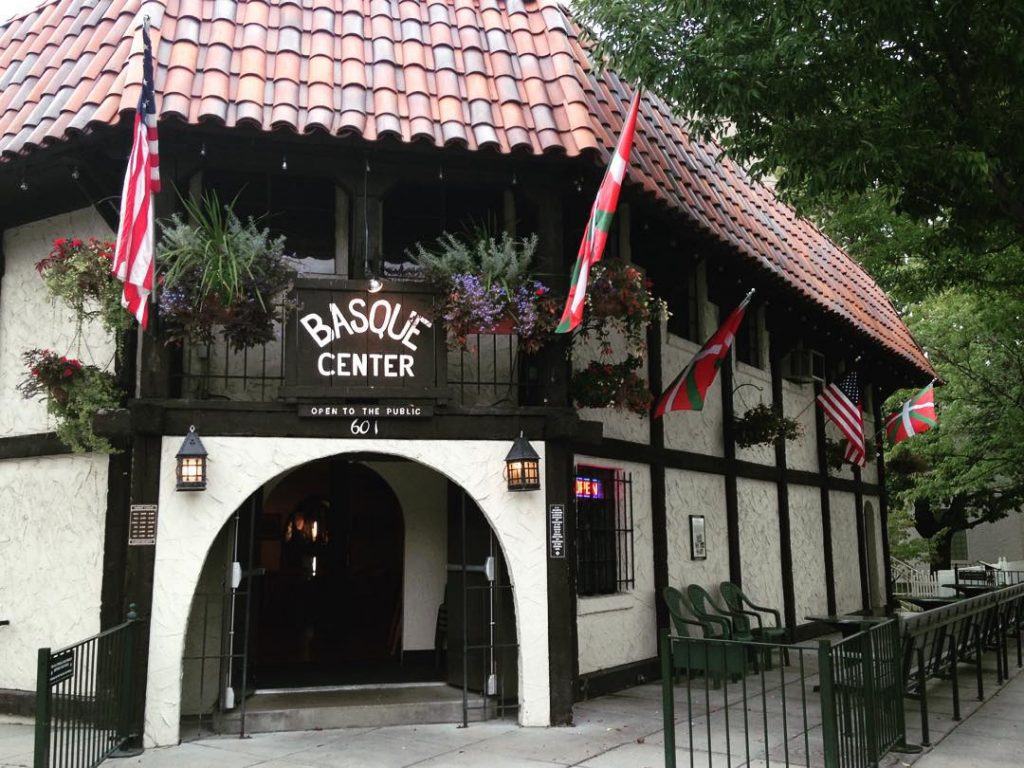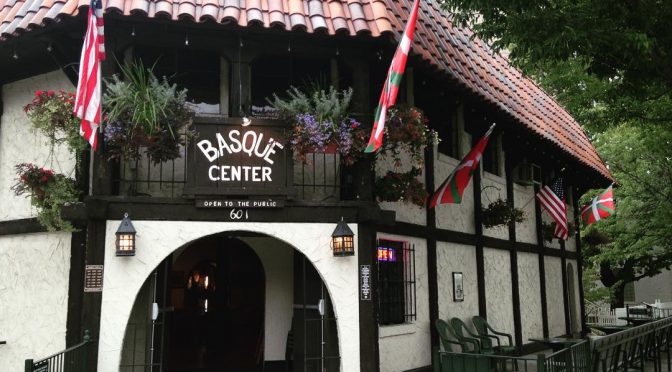Boise, Idaho, is one of the centers of Basque culture in the United States. The home of the Basque Block, which features the Boise Basque Center, the Basque Museum and Cultural Center, a fronton, the Basque Market, and the restaurants Bar Gernika and Leku Ona, it is also home to the Oinkari Basque Dancers and Jaialdi. With about 16,000 Basques, Boise has one of the largest Basque communities outside of the Basque Country. As one can imagine, this vibrant culture is a reflection of a long history in the area.

- Basques first came to Idaho in the late 1800s, attracted by the promise of silver and gold with discoveries in places like DeLamar (1889) and Silver City (1890). However, many quickly found themselves working as sheepherders. Others found work in timber or even building dams. Antonio Azcuenaga claimed to be the first Basque to reach southwest Idaho – he was trailing sheep in the area in 1889. By 1897, The Idaho Statesman was describing how John Archibal brought sheep down to the city.
- With the influx of Basques to the region, they need places to stay and people to help them get settled. As in other places, boarding houses popped up in Boise. What is now known as the Cyrus Jacobs/Uberuaga House began as a Basque boarding house in 1910. Even earlier, in 1900, Azcuenaga, who lived in Jordan Valley, Oregon, built the Oregon Hotel to cater to Basque immigrants. By 1920, there were nearly a dozen boarding houses in Boise. These included the Star Rooming House, Bicandi’s Boarding House, Anduiza’s, Uberuaga’s, and Bilaustegui’s. The last of them, the Uberuaga’s, closed in 1978.
- While Catholicism was an important aspect of the cultural heritage of those Basques living in Boise, young Basque immigrants tended not to attend church regularly. So the first Bishop of Boise, Monsignor Alphonse Glorieux, requested a priest to serve the Basque community in Southern Idaho and Eastern Oregon. Father Bernardo Arregui arrived in Boise on July 11, 1911 to serve the Basques of Idaho, Nevada, and Oregon. In 1916, he was named Spanish Vice Consulate in the United States. In 1918, he became pastor of the Church of the Good Shepherd, the only Basque parish in the United States. The Good Shepherd was dedicated in 1919. The church closed its doors in 1928 when the then-Bishop decided there shouldn’t be separate churches for different ethnicities.
- Boxing played an important role in the history of the Boise Basques. In 1954, three Boise Basques – John Bastida, Zenon Ysaguirre, and Teles Hormaechea – hired Vicente Echevarria, the Welter Weight champion in the Basque Country. They sponsored fights once a month, which drew spectators from as far as Nevada. Even though gambling was illegal, some places promoted betting on the fights. The proceeds went to maintaining and renovating the Basque Center.
- At one time, Boise had four frontons. Of those four, only one still exists: the Anduiza fronton that was built in 1914-15. In its heyday – the 1920s to 1940s – games were played every day at Anduiza. The Anduiza actually closed in 1943, bought by an engineering company, but in 1972 they agreed to restore it for pelota. In 1993, Adelia Garro Simplot and Richard Hormaechea bought the building and kept pelota alive in Boise. The other frontons were at the Star Hotel, the Hotel Iberria, and at Domingo Zabala’s.
- The Basques of Boise formed a tight group. They had specific societies to help one another. In 1908, the Basque men’s society Socorros Mutuos was founded to help with medical and funeral expenses. By the 1920s, there were at least two more: the Mutual Aid Society and the American Basque Fraternity. But these all catered to men. In 1930, a group of Basque women, including Escolástica Arriandiaga Ondarza, saw the need for a society dedicated to their needs and they formed the Subsidiary of the American Basque Fraternity. This was the first of several Basque organizations dedicated to Basque women.
Primary sources: Church of the Good Shepherd, Boise, Idaho, USA, Gloria Totoricagüena Egurrola; Totoricagüena Egurrola, Gloria Pilar. Estados Unidos de América. Idaho. Enciclopedia Auñamendi. Available at: https://aunamendi.eusko-ikaskuntza.eus/es/estados-unidos-de-america-idaho/ar-27125/; A Travel Guide to Basque America, Nancy Zubiri; Home Away from Home, Jeronima Echeverria.
Discover more from Buber's Basque Page
Subscribe to get the latest posts sent to your email.



So there is a Silver City in Idaho! there is one here in NM as well–and there are few Basque names–one being my dermatologist . most of the Basques were miners.